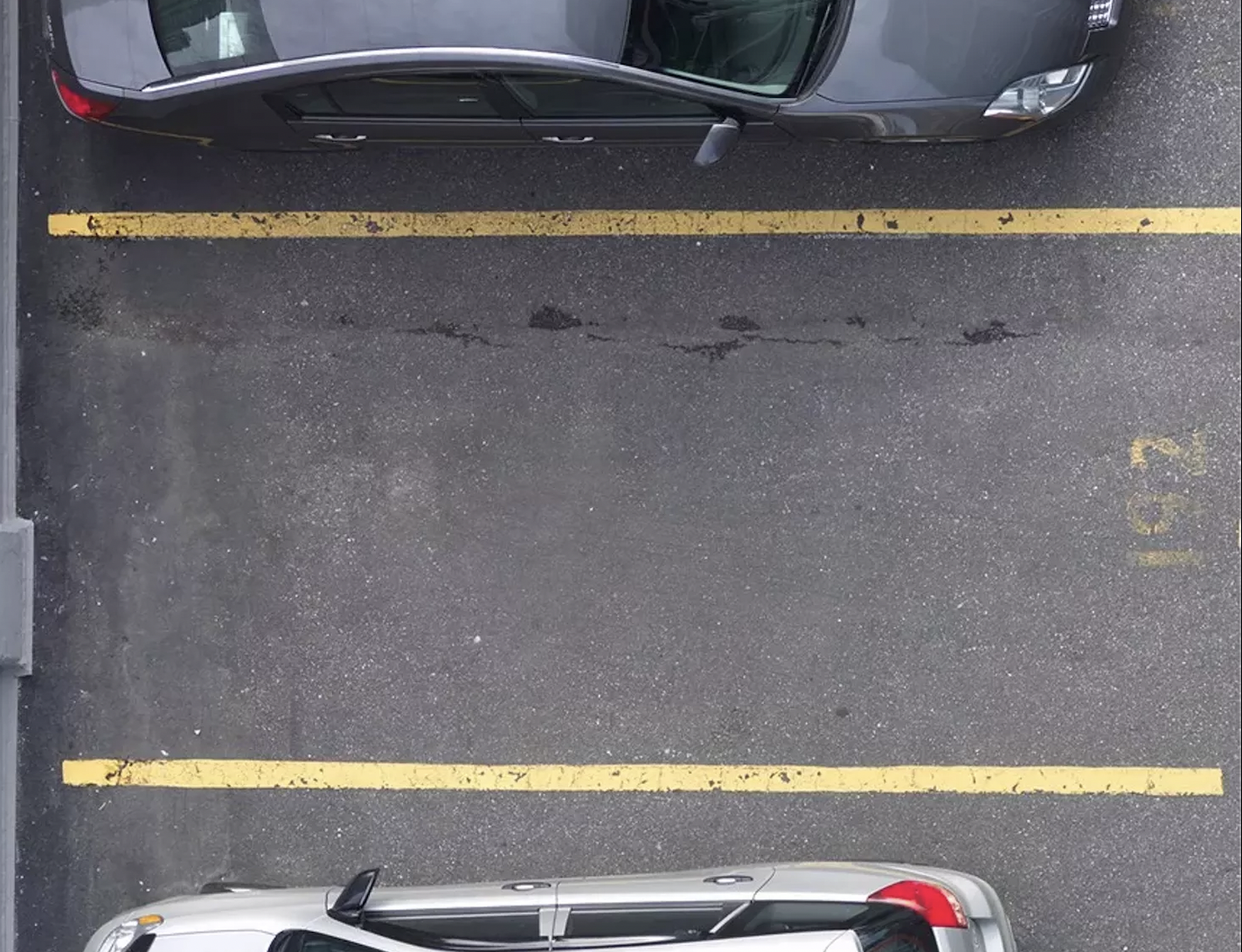
Getty Images

Audio By Carbonatix
A proposal to remove minimum parking requirements from Denver’s zoning code just took a big step forward.
If approved, developers in Denver will be able to choose whether to include new parking spaces in construction projects, and existing businesses and housing complexes will be able to eliminate current parking. The change could take place as soon as this summer.
Members of the Land Use, Transportation and Infrastructure Committee advanced the plan on Tuesday, May 20, sending it to the full council for consideration. The Denver City Council is expected to hold a public hearing on the proposal on July 7.
“We’re doing this to promote the development of more housing, provide flexibility for development to include the number of parking spaces they deem necessary based upon local conditions, and streamline our regulations,” Senior City Planner Justin Montgomery said during Tuesday’s meeting.
Right now, many new developments in Denver have to include a certain number of parking spots: one spot per dwelling unit for market-rate apartments, two spots per 1,000 square feet for retail and office space, or four spots per 1,000 square feet for restaurants and bars. Those requirements don’t apply to single-family homes or some downtown neighborhoods, however.
City officials say these requirements often lead to excess, unused parking areas that increase the costs of building and the time needed to review development applications. A parking space in a structured garage can add up to $50,000 to the cost of a dwelling unit, according to city staff.
“It’s not as though you’re going to suddenly have a ton of buildings with zero parking spots. Most places are going to include parking,” said Councilwoman Sarah Parady, one of the sponsors behind the proposal. “Are they going to maybe include ten less spots if it makes it easier to layout? Possibly.”
Opponents argue that removing parking minimums will force residents of new buildings to park on street sides, leading to crowded streets and increasing costs of existing parking lots and garages, and making it more difficult for people to drive to Denver destinations.
During Tuesday’s meeting, Council President Amanda Sandoval said her constituents in District 1 already struggle with mass redevelopment and little parking. She described residents who are landlocked by interstates and new buildings that cut them off from public transit systems, such as in the Sunnyside and Highland neighborhoods.
“The worst place that this is going to impact is northwest Denver,” Sandoval said. “You have these apartment buildings being built in those neighborhoods, and there’s mass tension; nasty note-writing on cars, nasty emails to my council office, nasty emails amongst each other, fighting. …For probably 80 percent of the city, this is going to work well. And Council District 1 is going to suffer.”
Most Denver residents seem to be on board with the plan, city planners claim. The city received over 300 public comments in response to the proposal submitted via email and an online portal, with 78 percent reportedly positive positive.
Notably, at least 79 of those supportive comments are identical copies of a statement that originates from the Denver Streets Partnership, pasted and submitted dozens of times. A portion of it reads: “Parking mandates in Denver’s current zoning code reinforce our city’s unaffordable, unhealthy, and unsustainable dependence on cars, and work against citywide goals for reducing greenhouse gas emissions, improving air quality, increasing housing affordability, building more walkable neighborhoods…”
Some comments aren’t so excited about the plan. Many in opposition are from homeowners and business owners who fear street parking will become overcrowded: “You can’t make people give up cars,” one comment reads. “All you do [is] make the neighborhoods miserable.”
“When residents are not provided adequate parking, they park on the street and they hurt small businesses,” another comment reads. “We have long-time clients who will not come to our business due to the lack of parking by residents and construction. …People are not biking or walking to make large or oversize purchases or to ski. Residents have cars!”
Advocates argue that developers will still create new parking, but the market will decide how much is needed rather than the government. The city points to various examples of developers adding more parking than legally required, like an office building at 1901 Lawrence Street that had no parking requirements but provided 633 spaces, or an apartment complex at 600 Park Avenue that provided 217 spaces.
Parady said she is exploring ways to better manage the street parking in Denver. Councilman Chris Hinds, another sponsor of the proposal, said he is looking into building more downtown parking structures that are open to everyone, such as the Cultural Center Complex garage.
“Different hours of the day cater to different constituent groups if we have those sorts of parking structures in areas where there is a density,” Hinds said Tuesday. “That is a better conversation than the disproportionate amount of time that’s spent in the permitting process to do these parking calculations.”
Denver’s proposal comes after Colorado passed a new state law last year, prohibiting cities from enforcing parking minimums for multifamily residential developments near transit routes as of June 30, 2025. City staffers said they decided to propose eliminating all parking requirements while analyzing the impact of implementing Colorado’s new law.
The plan is backed by Denver Mayor Mike Johnston, four councilmembers and several city agencies, including the Department of Community Planning and Development, Department of Transportation and Infrastructure, and Office of Climate Action, Sustainability and Resiliency.
Longmont has already gotten rid of minimum parking requirements, and so have dozens of other cities outside of Colorado, such as Austin, San Francisco and even Anchorage, Alaska.